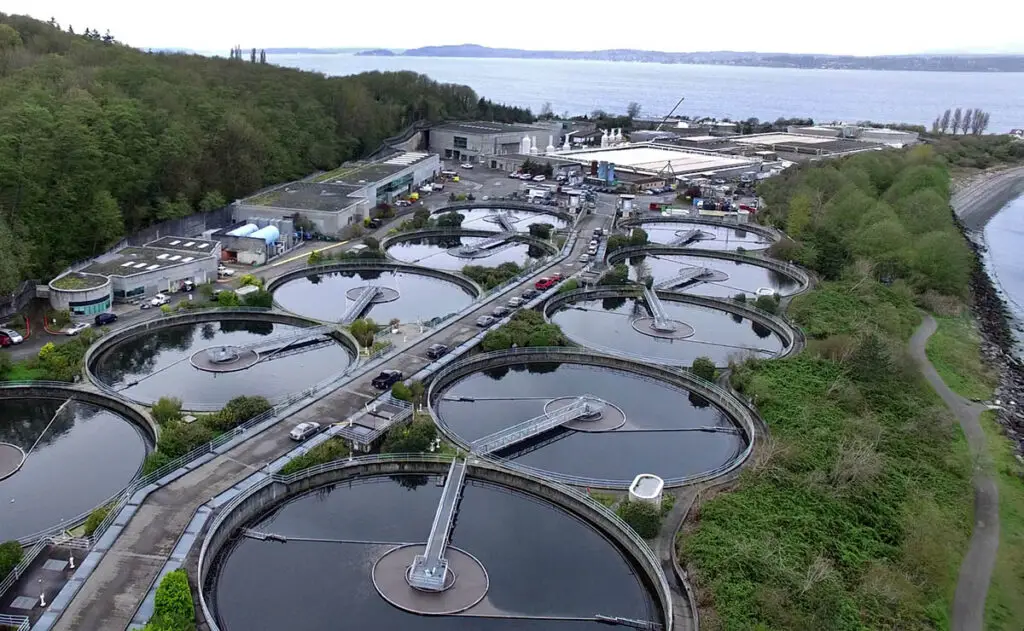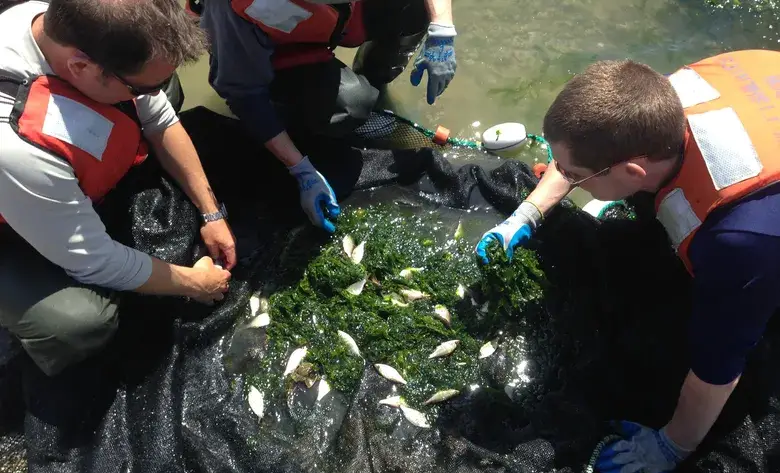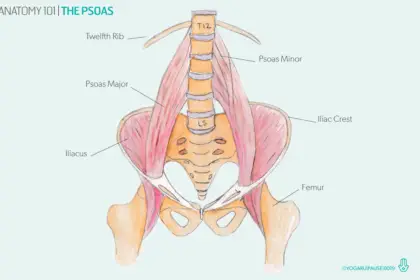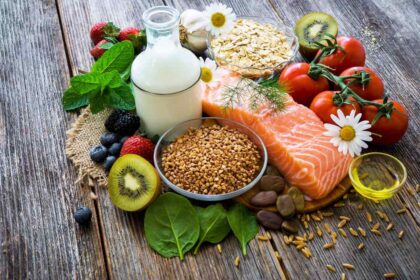In a shocking discovery, Chinook salmon captured off the coast of Seattle have been found to harbor an alarming array of 81 different substances, ranging from prescription drugs like Prozac and Lipitor to recreational drugs such as cocaine. This contamination is believed to be a result of high drug usage in the local area, coupled with inadequate filtration systems in nearby wastewater treatment plants and leaky septic tanks.
The implications of this chemical cocktail on the endangered salmon species, listed under the Endangered Species Act, are alarming. In addition, research suggests that juvenile Chinook salmon navigating through the polluted waters of Puget Sound face a significantly higher mortality rate compared to their counterparts in cleaner environments.
The Scale of Contamination
Jim Meador, an environmental toxicologist at The National Oceanic and Atmospheric Administration’s (NOAA) Northwest fisheries science center in Seattle, spearheaded the analysis of salmon samples. Out of the 150 compounds examined, a staggering 61% were detected in the wastewater effluent.
This indicates that the local wastewater treatment plants are unable to adequately filter out the majority of these substances. Salmon caught in the region have been found to contain a disturbing assortment of drugs, including Valium, nicotine, caffeine, various antibiotics, and antiseptics.

Experts warn that the concentrations of these substances may be even higher in deeper waters and areas near the outfall pipes.
Wildlife at Risk
While there are concerns about the impact of these chemicals on human health, scientists are much more concerned by the potential consequences for wildlife. The mortality rate of juvenile Chinook salmon migrating through the contaminated waters of Puget Sound has been found to be double that of fish in cleaner habitats.
This troubling finding suggests that the toxic cocktail in the salmon’s environment is severely impacting their survival and threatens the delicate balance of the ecosystem.
Causes and Culprits
The primary culprits behind this widespread contamination are believed to be inadequate wastewater treatment practices and faulty septic systems. Wastewater treatment plants, which are responsible for purifying the region’s sewage, are currently unable to effectively filter out the vast array of pharmaceuticals and illicit drugs present in the effluent.
The consequences of this failure extend beyond the local salmon population, as the contaminated water eventually finds its way back into the environment, affecting other aquatic organisms and potentially entering the human food chain.
Seattle, renowned for its thriving biotech industry, is home to several prominent biotech companies that contribute to the region’s economic growth and scientific advancements. While these companies play a vital role in driving innovation and medical breakthroughs, their activities can potentially contribute to drug pollution in the waters off the coast of Seattle.

It’s important to note that specific information on the direct involvement of these companies in water pollution is limited, and any assertions of culpability would require further investigation and evidence.
It’s important for me to note that while these biotech companies and research institutions are involved in drug development and related activities, any potential contribution to drug pollution in the waters off the coast of Seattle would likely stem from inadequate waste management practices, improper disposal of chemicals, or accidental releases rather than deliberate actions.
It would require specific investigations and assessments to determine the extent to which biotech companies in Seattle might contribute to drug pollution in the surrounding waters. Environmental monitoring, regulatory compliance, and responsible waste management practices are essential for mitigating any potential risks associated with drug contamination in the marine ecosystem.
But, one such as myself cannot help but question, what needs to be done to fix this problem? The impact on wildlife, the long-term consequences for human health cannot be ignored.
The presence of pharmaceuticals and illicit drugs in the flesh of the salmon raises questions about the potential accumulation of these substances in humans who consume the contaminated fish. Studies investigating the impact of such exposure on human health are crucial, as the full extent of the risks remains unknown.
Addressing the Issue
Recognizing the urgency of the situation, local authorities, environmental organizations, and research institutions have joined forces to tackle this pressing issue. Efforts are being made to improve wastewater treatment processes, enhance filtration systems, and implement more stringent monitoring of water quality.

Public awareness campaigns are being conducted to highlight the importance of proper drug disposal and the potential consequences of flushing medications down the drain. Additionally, stricter regulations are being proposed to limit the use of certain drugs or promote alternative treatments that have lower environmental impacts.
For more information on how to dispose of certain medications and other potentially harmful substances, visit the FDA.gov.
Safeguard Your Health with Activated Charcoal Detoxification
Are you concerned about the potential harmful substances found in food, such as contaminated salmon? Take a proactive step towards safeguarding your health and consider incorporating activated charcoal into your detoxification routine.
Activated charcoal, known for its exceptional adsorption properties, can help remove toxins and impurities from your body, providing a natural and effective means of purification.
Here’s why you should consider using activated charcoal:
- Detoxify Naturally: Activated charcoal acts as a powerful detoxifier by trapping harmful substances and chemicals in its porous structure. When consumed, it binds to these toxins, preventing their absorption by the body and facilitating their safe elimination through the digestive system.
- Neutralize Chemicals: The diverse array of substances detected in contaminated salmon, including pharmaceuticals and environmental pollutants, can pose potential risks to your health. Activated charcoal can help neutralize these chemicals, reducing their potential impact on your body.
- Promote Digestive Health: Activated charcoal has been found to support digestive health by alleviating bloating, gas, and discomfort. Its ability to adsorb unwanted substances in the gastrointestinal tract may aid in the elimination of toxins and promote a healthy gut environment.
- Enhance Overall Well-being: By reducing the burden of toxins in your body, activated charcoal may contribute to improved energy levels, clearer skin, and enhanced overall well-being. Detoxifying from harmful substances can help restore balance and optimize your body’s natural functions.
Consider adding activated charcoal to your detox regimen, particularly after consuming foods that may contain potentially harmful substances. It can be taken in capsule form or mixed with water as a slurry. Remember to stay adequately hydrated when using activated charcoal.
Click Here To Purchase Activated Charcoal Capsules.
While activated charcoal can aid in toxin removal, it is essential to support your body’s detoxification processes with a balanced and nutritious diet. Emphasize whole foods, fruits, vegetables, and adequate hydration to optimize your overall health.
Conclusion
The discovery of 81 hazardous substances in Chinook salmon captured off the coast of Seattle raises serious concerns about the environmental and ecological health of Puget Sound. The contamination, driven by inadequate wastewater treatment practices and leaky septic systems, threatens not only the survival of an endangered species but also the overall well-being of the ecosystem.
Urgent action is required to address this issue, ranging from improvements in wastewater treatment infrastructure to heightened public awareness and responsible medication disposal practices. Protecting the delicate balance of our marine environment is vital, ensuring the health and sustainability of both wildlife and humans for generations to come.





